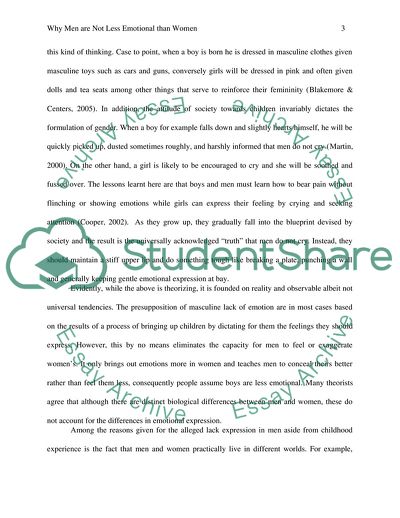Cite this document
(Why Men are Not Less Emotional than Women Essay Example | Topics and Well Written Essays - 2500 words, n.d.)
Why Men are Not Less Emotional than Women Essay Example | Topics and Well Written Essays - 2500 words. https://studentshare.org/sociology/1853435-emotions-and-social-life-the-view-that-men-are-less-emotional-than-women-is-now-outdated-and-inaccurate-discuss
Why Men are Not Less Emotional than Women Essay Example | Topics and Well Written Essays - 2500 words. https://studentshare.org/sociology/1853435-emotions-and-social-life-the-view-that-men-are-less-emotional-than-women-is-now-outdated-and-inaccurate-discuss
(Why Men Are Not Less Emotional Than Women Essay Example | Topics and Well Written Essays - 2500 Words)
Why Men Are Not Less Emotional Than Women Essay Example | Topics and Well Written Essays - 2500 Words. https://studentshare.org/sociology/1853435-emotions-and-social-life-the-view-that-men-are-less-emotional-than-women-is-now-outdated-and-inaccurate-discuss.
Why Men Are Not Less Emotional Than Women Essay Example | Topics and Well Written Essays - 2500 Words. https://studentshare.org/sociology/1853435-emotions-and-social-life-the-view-that-men-are-less-emotional-than-women-is-now-outdated-and-inaccurate-discuss.
“Why Men Are Not Less Emotional Than Women Essay Example | Topics and Well Written Essays - 2500 Words”. https://studentshare.org/sociology/1853435-emotions-and-social-life-the-view-that-men-are-less-emotional-than-women-is-now-outdated-and-inaccurate-discuss.


